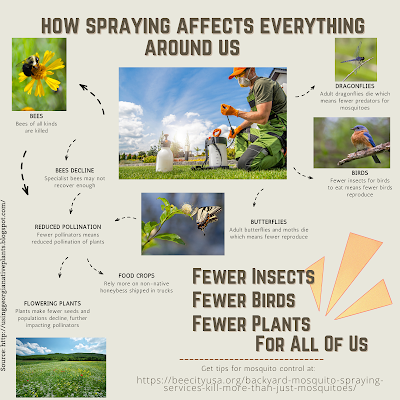Another Pollinator Week finishes up today and—in a week of
seeing very few pollinators—I wonder if we're just going through the motions.
Those of us pledging to support pollinators, plant native plants, avoid
pesticides … we’re the same people each year. Of course a few new people get
the message each year but it seems like we’re wiping up a flood with a tissue.
The big contributors to pollinator decline are apparently
not the ones we’re reaching:
- Homeowners who sign up for mosquito treatments, affecting neighbors all around.
- Businesses who sign up for chemically-soaked landscape services, also affecting others.
- Cities and counties who approve mosquito-spraying licenses, implement large spraying programs, approve development without conservation, and fail to promote native plants for development.
- And all of the above that plant non-native plants without a thought to what that means for supporting our native insects and birds.
In my suburban area, I have watched the growing use
of pesticides, the increase in lawn-scaped residential properties, and the
reduction in native plants that have transformed this area into a fraction of
what is needed for a healthy pollinator population. Non-native honeybees have
taken up some of the slack, but they do so while the diversity of our own bee
populations decline.
- What you do in your landscape, what you spray, it doesn’t stay there. A reduction in insects today may be the result of spraying 1-2 years ago.
- What you plant matters. Insects can’t reproduce if the native host plants they need are not available.
- Convincing other people works. Talk to your family, your friends, your neighbors, your legislators and representatives. Don’t wait for someone else to do it. Grow this movement and educate others about why it matters.

No comments:
Post a Comment